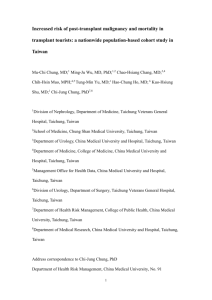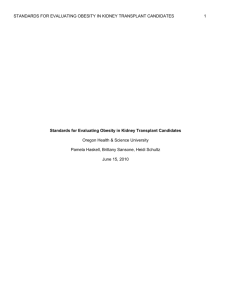An exploratory investigation to determine whether changes in
advertisement
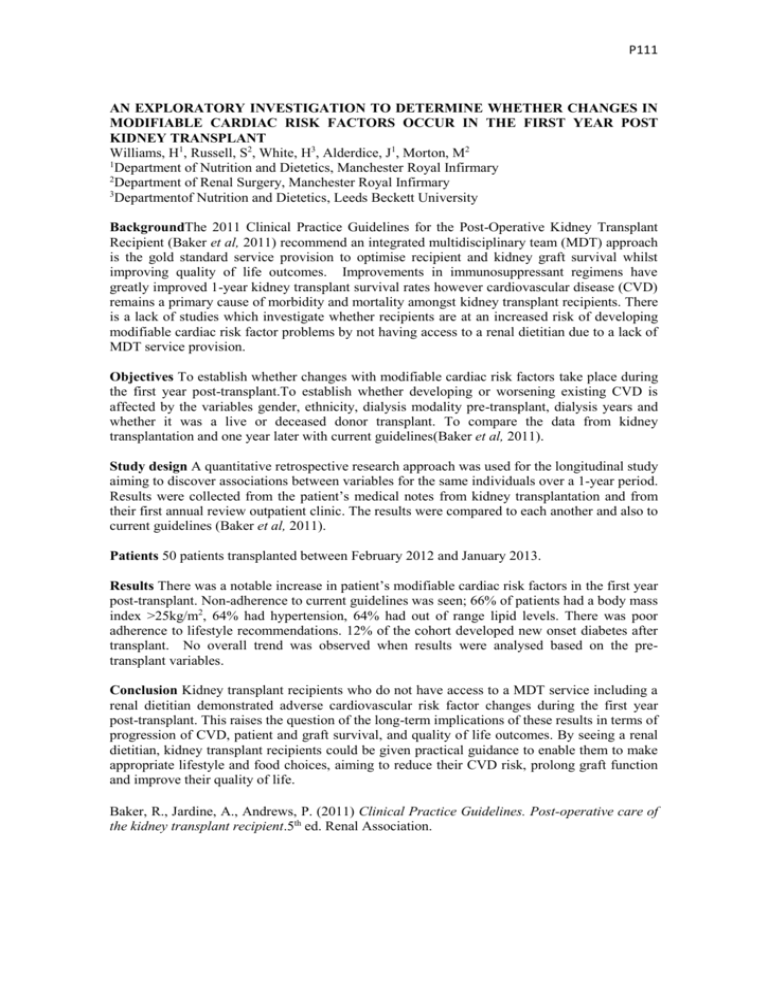
P111 AN EXPLORATORY INVESTIGATION TO DETERMINE WHETHER CHANGES IN MODIFIABLE CARDIAC RISK FACTORS OCCUR IN THE FIRST YEAR POST KIDNEY TRANSPLANT Williams, H1, Russell, S2, White, H3, Alderdice, J1, Morton, M2 1 Department of Nutrition and Dietetics, Manchester Royal Infirmary 2 Department of Renal Surgery, Manchester Royal Infirmary 3 Departmentof Nutrition and Dietetics, Leeds Beckett University BackgroundThe 2011 Clinical Practice Guidelines for the Post-Operative Kidney Transplant Recipient (Baker et al, 2011) recommend an integrated multidisciplinary team (MDT) approach is the gold standard service provision to optimise recipient and kidney graft survival whilst improving quality of life outcomes. Improvements in immunosuppressant regimens have greatly improved 1-year kidney transplant survival rates however cardiovascular disease (CVD) remains a primary cause of morbidity and mortality amongst kidney transplant recipients. There is a lack of studies which investigate whether recipients are at an increased risk of developing modifiable cardiac risk factor problems by not having access to a renal dietitian due to a lack of MDT service provision. Objectives To establish whether changes with modifiable cardiac risk factors take place during the first year post-transplant.To establish whether developing or worsening existing CVD is affected by the variables gender, ethnicity, dialysis modality pre-transplant, dialysis years and whether it was a live or deceased donor transplant. To compare the data from kidney transplantation and one year later with current guidelines(Baker et al, 2011). Study design A quantitative retrospective research approach was used for the longitudinal study aiming to discover associations between variables for the same individuals over a 1-year period. Results were collected from the patient’s medical notes from kidney transplantation and from their first annual review outpatient clinic. The results were compared to each another and also to current guidelines (Baker et al, 2011). Patients 50 patients transplanted between February 2012 and January 2013. Results There was a notable increase in patient’s modifiable cardiac risk factors in the first year post-transplant. Non-adherence to current guidelines was seen; 66% of patients had a body mass index >25kg/m2, 64% had hypertension, 64% had out of range lipid levels. There was poor adherence to lifestyle recommendations. 12% of the cohort developed new onset diabetes after transplant. No overall trend was observed when results were analysed based on the pretransplant variables. Conclusion Kidney transplant recipients who do not have access to a MDT service including a renal dietitian demonstrated adverse cardiovascular risk factor changes during the first year post-transplant. This raises the question of the long-term implications of these results in terms of progression of CVD, patient and graft survival, and quality of life outcomes. By seeing a renal dietitian, kidney transplant recipients could be given practical guidance to enable them to make appropriate lifestyle and food choices, aiming to reduce their CVD risk, prolong graft function and improve their quality of life. Baker, R., Jardine, A., Andrews, P. (2011) Clinical Practice Guidelines. Post-operative care of the kidney transplant recipient.5th ed. Renal Association.


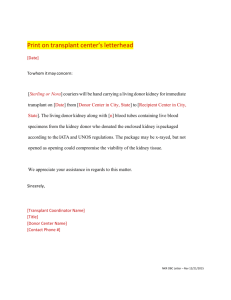
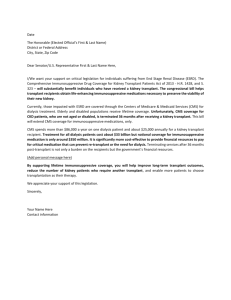



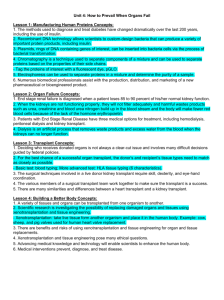
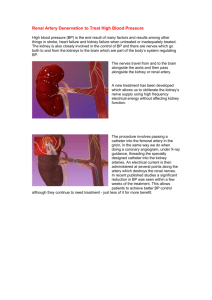
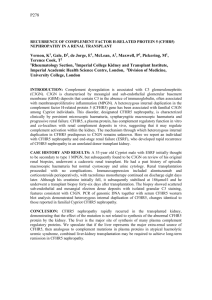
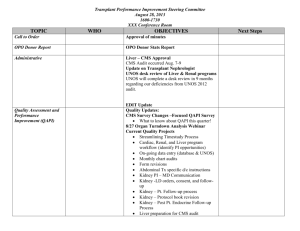
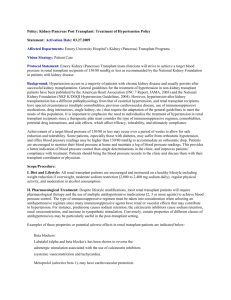
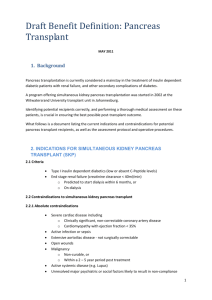
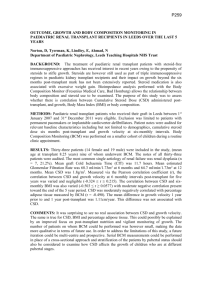
![SphygmoCor Publications in 2008 & 2009 renal[A4]](http://s3.studylib.net/store/data/007115946_1-7e72d6920611ed5c7bb2809ac640dccd-300x300.png)
